
- •Contents
- •Thanks
- •To the student
- •To the teacher
- •3 Present continuous and present simple 1 (I am doing and I do)
- •10 Present perfect continuous and simple (I have been doing and I have done)
- •11 how long have you (been) … ?
- •12 for and since when … ? and how long … ?
- •13 Present perfect and past 1 (I have done and I did)
- •14 Present perfect and past 2 (I have done and I did)
- •15 Past perfect (I had done)
- •16 Past perfect continuous (I had been doing)
- •17 have and have got
- •18 used to (do)
- •19 Present tenses (I am doing / I do) for the future
- •20 I’m going to (do)
- •21 will and shall 1
- •22 will and shall 2
- •23 I will and I’m going to
- •24 will be doing and will have done
- •26 can, could and (be) able to
- •27 could (do) and could have (done)
- •28 must and can’t
- •29 may and might 1
- •30 may and might 2
- •31 have to and must
- •32 must mustn’t needn’t
- •33 should 1
- •34 should 2
- •35 I’d better … it’s time …
- •36 would
- •39 if I knew … I wish I knew …
- •40 if I had known … I wish I had known …
- •41 wish
- •42 Passive 1 (is done / was done)
- •43 Passive 2 (be done / been done / being done)
- •44 Passive 3
- •45 it is said that … he is said to … he is supposed to …
- •46 have something done
- •47 Reported speech 1 (he said that …)
- •48 Reported speech 2
- •49 Questions 1
- •52 Question tags (do you? isn’t it? etc.)
- •53 Verb + -ing (enjoy doing / stop doing etc.)
- •54 Verb + to … (decide to … / forget to … etc.)
- •55 Verb (+ object) + to … (I want you to …)
- •56 Verb + -ing or to … 1 (remember, regret etc.)
- •57 Verb + -ing or to … 2 (try, need, help)
- •58 Verb + -ing or to … 3 (like / would like etc.)
- •59 prefer and would rather
- •60 Preposition (in/for/about etc.) + -ing
- •61 be/get used to … (I’m used to …)
- •63 there’s no point in -ing, it’s worth -ing etc.
- •64 to … , for … and so that …
- •65 Adjective + to …
- •66 to … (afraid to do) and preposition + -ing (afraid of -ing)
- •67 see somebody do and see somebody doing
- •68 -ing clauses (He hurt his knee playing football.)
- •69 Countable and uncountable 1
- •70 Countable and uncountable 2
- •71 Countable nouns with a/an and some
- •74 the 2 (school / the school etc.)
- •75 the 3 (children / the children)
- •77 Names with and without the 1
- •78 Names with and without the 2
- •79 Singular and plural
- •80 Noun + noun (a bus driver / a headache)
- •81 -’s (your sister’s name) and of … (the name of the book)
- •82 myself/yourself/themselves etc.
- •83 a friend of mine my own house on my own / by myself
- •84 there … and it …
- •85 some and any
- •87 much, many, little, few, a lot, plenty
- •90 all every whole
- •91 each and every
- •92 Relative clauses 1: clauses with who/that/which
- •94 Relative clauses 3: whose/whom/where
- •95 Relative clauses 4: extra information clauses (1)
- •96 Relative clauses 5: extra information clauses (2)
- •97 -ing and -ed clauses (the woman talking to Tom, the boy injured in the accident)
- •98 Adjectives ending in -ing and -ed (boring/bored etc.)
- •99 Adjectives: a nice new house, you look tired
- •100 Adjectives and adverbs 1 (quick/quickly)
- •102 so and such
- •104 quite, pretty, rather and fairly
- •105 Comparative 1 (cheaper, more expensive etc.)
- •106 Comparative 2 (much better / any better etc.)
- •107 Comparative 3 (as … as / than)
- •108 Superlative (the longest / the most enjoyable etc.)
- •109 Word order 1: verb + object; place and time
- •110 Word order 2: adverbs with the verb
- •111 still any more yet already
- •112 even
- •114 in case
- •116 as (as I walked … / as I was … etc.)
- •117 like and as
- •119 during for while
- •121 at/on/in (time)
- •122 on time and in time at the end and in the end
- •123 in/at/on (position) 1
- •124 in/at/on (position) 2
- •125 in/at/on (position) 3
- •126 to, at, in and into
- •127 in/on/at (other uses)
- •129 Noun + preposition (reason for, cause of etc.)
- •130 Adjective + preposition 1
- •131 Adjective + preposition 2
- •132 Verb + preposition 1 to and at
- •134 Verb + preposition 3 about and of
- •135 Verb + preposition 4 of/for/from/on
- •136 Verb + preposition 5 in/into/with/to/on
- •137 Phrasal verbs 1 Introduction
- •138 Phrasal verbs 2 in/out
- •139 Phrasal verbs 3 out
- •142 Phrasal verbs 6 up/down
- •143 Phrasal verbs 7 up (1)
- •144 Phrasal verbs 8 up (2)
- •145 Phrasal verbs 9 away/back
- •Additional exercises
- •Study guide
- •Key to Exercises
- •Key to Additional exercises (see page 302)
- •Key to Study guide
- •Index

Additional exercises
These exercises are divided into the following sections:
Present and past (Units 1–6) |
Exercise 1 |
|
Present and past (Units 1–14) |
Exercises 2–4 |
|
Present and past (Units 1–17) |
Exercises 5–8 |
|
Past continuous and used to (Units 6, 18) |
Exercise 9 |
|
The future (Units 19–25) |
Exercises 10–13 |
|
Past, present and future (Units 1–25) |
Exercises 14–15 |
|
Modal verbs (can/must/would etc.) (Units 26–36) |
Exercises 16–18 |
|
if (conditional) (Units 25, 38–40) |
Exercises 19–21 |
|
Passive (Units 42–45) |
Exercises 22–24 |
|
Reported speech (Units 47–48, 50) |
Exercise 25 |
|
-ing and to … (Units 53–66) |
Exercises 26–28 |
|
a/an and the (Units 69–78) |
Exercise 29 |
|
Pronouns and determiners (Units 82–91) |
Exercise 30 |
|
Adjectives and adverbs (Units 98–108) |
Exercise 31 |
|
Conjunctions (Units 25, 38, 112–118) |
Exercise 32 |
|
Prepositions (time) (Units 12, 119–122) |
Exercise 33 |
|
Prepositions (position etc.) (Units 123–128) |
Exercise 34 |
|
Noun/adjective + preposition (Units 129–131) |
Exercise 35 |
|
Verb + preposition (Units 132–136) |
Exercise 36 |
|
Phrasal verbs (Units 137–145) |
Exercises 37–41 |
|
|
|
|
|
|
|
Present and past Units 1–6, Appendix 2
1Put the verb into the correct form: present simple (I do), present continuous (I am doing), past simple (I did) or past continuous (I was doing).
1 |
We can go out now. It |
isn’t raining |
(it / not / rain) any more. |
|
2 |
Katherine was waiting |
(wait) for me when |
I arrived (I / arrive). |
|
3 |
|
(I / get) hungry. Let’s go and have something to eat. |
||
4 |
What |
(you / do) in your spare time? Do you have any hobbies? |
||
5 |
The weather was horrible when |
|
(we / arrive). It was cold and |
|
|
|
(it / rain) hard. |
|
|
6 |
Louise usually |
|
(phone) me on Fridays, but |
|
|
|
(she / not / phone) last Friday. |
||
7 |
a: When I last saw you, |
|
|
(you / think) of moving to a new flat. |
|
b: That’s right, but in the end |
|
(I / decide) to stay where I was. |
|
8 |
Why |
|
(you / look) at me like that? What’s the matter? |
|
9 |
It’s usually dry here at this time of the year. |
(it / not / rain) much. |
||
10 |
I waved to Ben, but he didn’t see me. |
|
(he / not / look) in my |
|
|
direction. |
|
|
|
11 |
Lisa was busy when |
|
|
(we / go) to see her yesterday. She had an |
|
exam today and |
|
|
(she / prepare) for it. |
|
|
(we / not / want) to disturb her, so |
||
|
(we / not / stay) very long. |
|
|
|
12 |
When I first |
|
(tell) Tom what happened, |
|
|
(he / not / believe) me. |
|
|
(he / think) that |
|
(I / joke). |
|
|
|
302
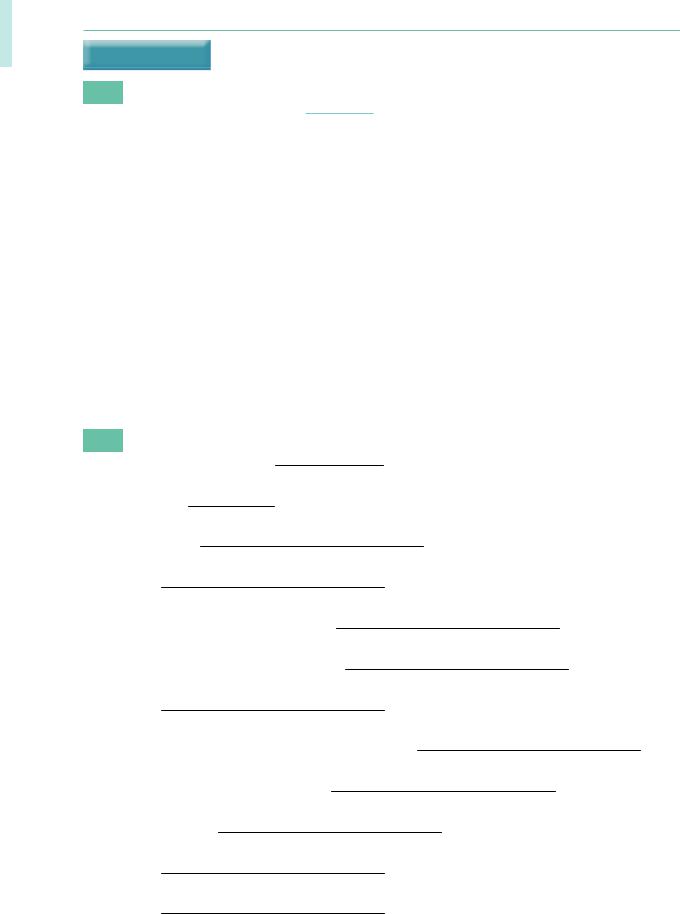
Additional exercises
Present and past |
Units 1–14, Appendix 2 |
2Which is correct?
1 Everything is going well. We didn’t have / haven’t had any problems so far.
(haven’t had is correct)
2 Lisa didn’t go / hasn’t gone to work yesterday. She wasn’t feeling well. 3 Look! That man over there wears / is wearing the same sweater as you. 4 I went / have been to New Zealand last year.
5 I didn’t hear / haven’t heard from Jess recently. I hope she’s OK.
6 I wonder why James is / is being so nice to me today. He isn’t usually like that. 7 Jane had a book open in front of her, but she didn’t read / wasn’t reading it.
8 I wasn’t very busy. I didn’t have / wasn’t having much to do. 9 It begins / It’s beginning to get dark. Shall I turn on the light?
10At er leaving school, Mark worked / has worked in a hotel for a while.
11When Sue heard the news, she wasn’t / hasn’t been very pleased.
12This is a nice hotel, isn’t it? Is this the first time you stay / you’ve stayed here?
13I need a new job. I’m doing / I’ve been doing the same job for too long.
14 |
‘Anna has gone out.’ ‘Oh, has she? What time did she go / has she gone?’ |
15 |
‘You look tired.’ ‘Yes, I’ve played / I’ve been playing basketball.’ |
16Where are you coming / do you come from? Are you American?
17I’d like to see Tina again. It’s a long time since I saw her / that I didn’t see her.
18Robert and Maria have been married since 20 years / for 20 years.
3Complete each question using a suitable verb.
1 |
a: I’m looking for Paul. |
Have you seen |
him? |
|
|
b: Yes, he was here a moment ago. |
|
|
|
2 |
a: Why did you go |
to bed so early last night? |
|
|
|
b: I was feeling very tired. |
|
|
|
3 |
a: Where |
|
? |
|
|
b: Just to the shop at the end of the street. I’ll only be ten minutes. |
|
||
4 |
a: |
|
TV every day? |
|
|
b: No, only if there’s something special on. |
|
|
|
5 |
a: Your house is lovely. How long |
here? |
|
|
|
b: Nearly ten years. |
|
|
|
6 |
a: How was your parents’ holiday? |
a nice time? |
|
|
|
b: Yes, they really enjoyed it. |
|
|
|
7 |
a: |
|
Sarah recently? |
|
|
b: Yes, we had lunch together a few days ago. |
|
||
8 |
a: Can you describe the woman you saw? What |
? |
||
|
b: A red sweater and black jeans. |
|
|
|
9 |
a: I’m sorry to keep you waiting. |
long? |
|
|
|
b: No, only about ten minutes. |
|
|
|
10 |
a: How long |
|
to get from here to the airport? |
|
|
b: Usually about 45 minutes. It depends on the traf ic. |
|
||
11 |
a: |
|
this song before? |
|
|
b: No, this is the first time. I like it. |
|
|
|
12 |
a: |
|
to the United States? |
|
b: No, never, but I went to Canada a few years ago.
303
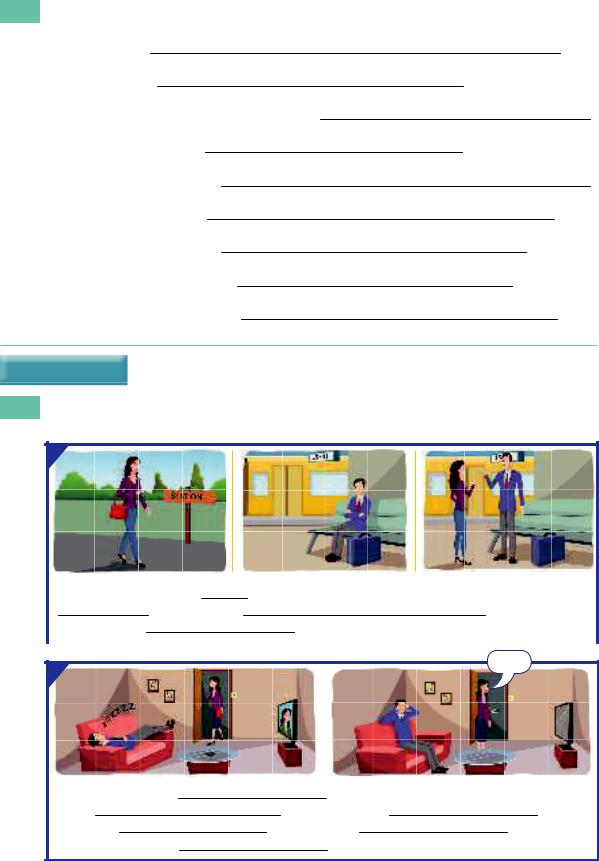
Additional exercises
4Use your own ideas to complete B’s sentences.
1 |
a: What’s Chicago like? Is it a good place to visit? |
|
|
b: I’ve no idea. I’ve never been |
there. |
2 |
a: How well do you know Ben? |
|
|
b: Very well. We |
since we were children. |
3 |
a: Did you enjoy your holiday? |
|
|
b: Yes, it was really good. It’s the best holiday |
. |
4 |
a: Is David still here? |
|
|
b: No, I’m afraid he isn’t. |
about ten minutes ago. |
5 |
a: I like your suit. I haven’t seen it before. |
|
|
b: It’s new. It’s the first time |
. |
6 |
a: How did you cut your knee? |
|
|
b: I slipped and fell when |
tennis. |
7 |
a: Do you ever go swimming? |
|
|
b: Not these days. I haven’t |
a long time. |
8 |
a: How ot en do you go to the cinema? |
|
|
b: Very rarely. It’s nearly a year |
to the cinema. |
9 |
a: I bought some new shoes. Do you like them? |
|
|
b: Yes, they’re very nice. Where |
them? |
Present and past Units 1–17, 110, Appendix 2
5Put the verb into the correct form: past simple (I did), past continuous (I was doing), past perfect (I had done) or past perfect continuous (I had been doing).
1
SARAH
Yesterday aternoon Sarah went |
(go) to the station to meet Paul. When she |
|
(get) there, Paul |
|
(already / wait) |
for her. His train |
(arrive) early. |
|
|
|
|
2 |
|
Hello. |
|
|
|
BEN |
|
|
|
|
|
When I got home, Ben |
(lie) on the sofa. The TV was on, |
|
but he |
(not / watch) it. He |
(fall) |
asleep and |
(snore) loudly. I |
(turn) the |
TV of and just then he |
(wake) up. |
|
304

Additional exercises
3
Last night I |
(just / go) to bed and |
(read) |
a book when suddenly I |
(hear) a noise. I |
|
(get) up to see what it was, but I |
(not / see) anything, so I |
|
(go) back to bed.
Where’s my passport?
4
Lisa had to go to New York last week, but she almost |
|
|
|
(miss) the |
||||
plane. She |
|
(stand) in the queue at the check-in desk when she |
||||||
suddenly |
|
(realise) that she |
|
|
|
(leave) her |
||
passport at home. Fortunately she lives near the airport, so she |
|
|
(have) |
|||||
time to take a taxi home to get it. She |
|
(get) back to the airport |
||||||
just in time for her flight. |
|
|
|
|
|
|
|
|
|
|
|
|
|
|
|
|
|
5 |
|
Did you have |
Yes, great. |
|
Come and |
I’m sorry, but … |
||
Hi. |
a |
good game? |
|
have a drink. |
||||
|
|
|
||||||
|
|
|
|
|
||||
|
|
|
|
|
|
|
|
|
I |
(meet) Peter and Lucy yesterday as I |
|
(walk) through the park. They |
(be) to the Sports Centre where they |
|
|
(play) tennis. They |
(go) to a cafe and |
|
(invite) me to join them, but I |
|
(arrange) to meet another friend and |
(not / have) time. |
|
6Make sentences from the words in brackets. Put the verb into the correct form: present perfect (I have done), present perfect continuous (I have been doing), past perfect (I had done) or past perfect continuous (I had been doing).
1 Amanda is sitting on the ground. She’s out of breath. (she / run) She has been running.
2Where’s my bag? I let it under this chair. (somebody / take / it)
3We were all surprised when Jess and Nick got married last year. (they / only / know / each other / a few weeks)
4It’s still raining. I wish it would stop. (it / rain / all day)
5Suddenly I woke up. I was confused and didn’t know where I was. (I / dream)
305
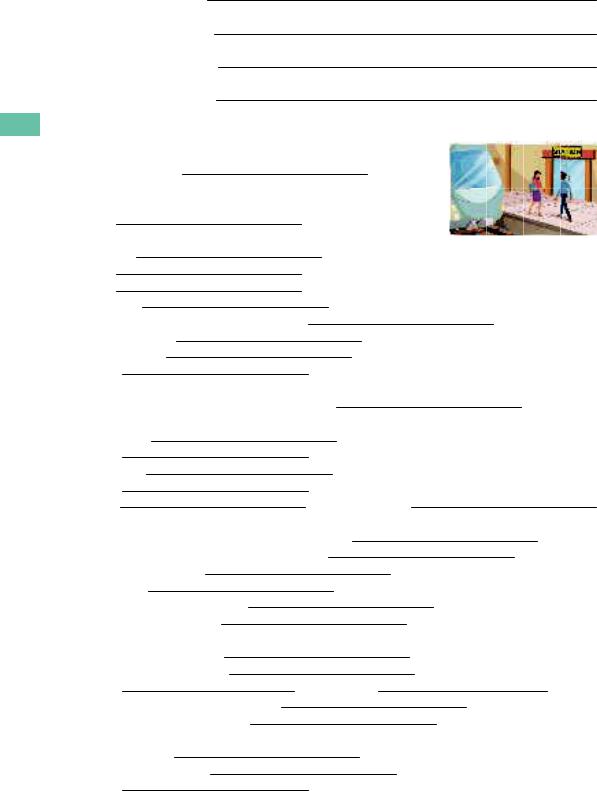
Additional exercises
6It was lunchtime, but I wasn’t hungry. I didn’t want to eat anything. (I / have / a big breakfast)
7Every year Robert and Tina spend a few days at the same hotel by the sea. (they / go / there for years)
8I’ve got a headache.
(I / have / it / since I got up)
9Next month Gary is going to run in a marathon. (he / train / very hard for it)
7Put the verb into the correct form.
Sarah and Joe are old friends. They meet by chance at a train station.
SaRaH: |
Hello, Joe. (1) |
(I / not / see) |
|
|
you for ages. How are you? |
|
|
JOE: |
I’m fine. How about you? |
|
|
|
(2) |
(you / look) good. |
|
SaRaH: |
Thanks. You too. |
|
|
|
So, (3) |
(you / go) somewhere or |
|
|
(4) |
(you / meet) somebody? |
|
JOE: |
(5) |
(I / go) to London for a business meeting. |
|
SaRaH: |
Oh. (6) |
(you / ot en / go) away on business? |
|
JOE: |
Quite ot en, yes. And you? Where (7) |
(you / go)? |
|
SaRaH: |
Nowhere. (8) |
(I / meet) a friend. Unfortunately |
|
|
her train (9) |
(be) delayed – |
|
|
(10) |
(I / wait) here for nearly an hour. |
|
JOE: |
How are your children? |
|
|
SaRaH: |
They’re all fine, thanks. The youngest (11) |
(just / start) |
|
|
school. |
|
|
JOE: |
How (12) |
(she / get) on? |
|
|
(13) |
(she / like) it? |
|
SaRaH: |
Yes, (14) |
(she / think) it’s great. |
|
JOE: |
(15) |
(you / work) at the moment? The last time I |
|
|
(16) |
(speak) to you, (17) |
|
|
(you / work) for an insurance company. |
|
|
SaRaH: |
That’s right. Unfortunately the company (18) |
(go) out |
|
|
of business a couple of months at er (19) |
(I / start) |
|
|
work there, so (20) |
(I / lose) my job. |
|
JOE: |
And (21) |
(you / not / have) a job since then? |
|
SaRaH: |
Not a permanent job. (22) |
(I / have) a few temporary |
|
|
jobs. By the way, (23) |
(you / see) Matt recently? |
|
JOE: |
Matt? He’s in Canada. |
|
|
SaRaH: |
Really? How long (24) |
(he / be) in Canada? |
|
JOE: |
About a year now. (25) |
(I / see) him a few days before |
|
|
(26) |
(he / go). (27) |
(he / be) |
|
unemployed for months, so (28) |
(he / decide) to try his |
|
|
luck somewhere else. (29) |
(he / really / look forward) |
|
|
to going. |
|
|
SaRaH: |
So, what (30) |
(he / do) there? |
|
JOE: |
I have no idea. (31) |
(I / not / hear) from him since |
|
|
(32) |
(he / leave). Anyway, I have to go and catch my |
|
|
train. It was really good to see you again. |
|
|
SaRaH: |
You too. Bye! Have a good trip! |
|
|
JOE: |
Thanks. Bye. |
|
|
306
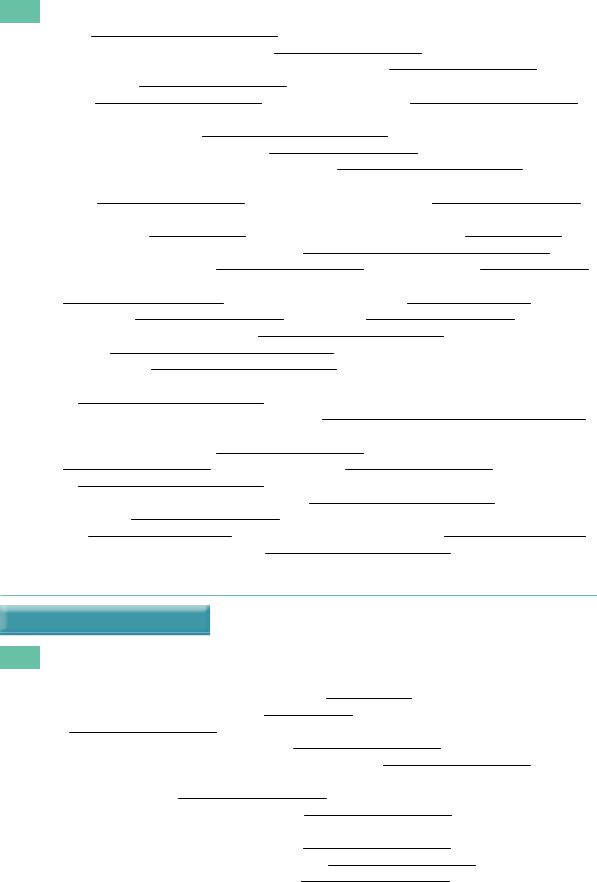
Additional exercises
8Put the verb into the most suitable form.
1 |
Who |
(invent) the bicycle? |
|
|
2 |
‘Do you still have a headache?’ |
‘No, |
(it / go). I’m OK now.’ |
|
3 |
I was the last to leave the of ice last night. Everybody else |
|
(go) |
|
|
home when I |
(leave). |
|
|
4 |
What |
(you / do) last weekend? |
|
|
|
(you / go) anywhere? |
|
|
|
5 |
I like your car. How long |
(you / have) it? |
|
|
6 |
It’s a shame the trip was cancelled. I |
(look) forward to it. |
||
7 |
Jane is an experienced teacher and loves her job. |
|
(she / teach) |
|
|
for 15 years. |
|
|
|
8 |
Emily |
(buy) a new dress last week, but |
|
|
|
(she / not / wear) it yet. |
|
|
|
9 |
A few days ago |
(I / meet) a man at a party whose face |
(be) |
|
|
very familiar. At first I couldn’t think where |
|
(I / see) |
|
|
him before. Then suddenly |
(I / remember) who |
|
|
|
(he / be). |
|
|
|
10 |
(you / hear) of Agatha Christie? |
|
(she / be) |
|
|
a writer who |
(die) in 1976. |
|
(she / write) |
|
more than 70 detective novels, but |
(I / not / read) any of them. |
||
11 |
a: What |
(this word / mean)? |
|
|
|
b: I’ve no idea. |
(I / never / see) it before. Look it up in the |
||
|
dictionary. |
|
|
|
12 |
a: |
(you / get) to the theatre in time for the play last night? |
||
b:No, we were late. By the time we got there, (it / already / start).
13 |
I went to Sarah’s room and |
(knock) on the door, but there |
|
|
|
(be) no answer. Either |
(she / go) out |
|
or |
(she / not / want) to see anyone. |
|
14 |
Dan asked me how to use the photocopier. |
(he / never / use) |
|
|
it before, so |
(he / not / know) what to do. |
|
15 |
Lisa |
(go) for a swim at er work yesterday. |
|
|
(she / need) some exercise because |
(she / sit) in an of ice all |
|
|
day in front of a computer. |
|
|
Past continuous and used to Units 6, 18
9Complete the sentences using the past continuous (was/were -ing) or used to … . Use the verb in brackets.
1 |
I haven’t been to the cinema for ages now. We used to go |
a lot. (go) |
|
|
2 |
Ann didn’t see me wave to her. She was looking in the other direction. (look) |
|
||
3 |
I |
a lot, but I don’t use my car very much these days. (drive) |
|
|
4 |
I asked the taxi driver to slow down. She |
too fast. (drive) |
|
|
5 |
Rosemary and Jonathan met for the first time when they |
in the |
||
|
same bank. (work) |
|
|
|
6 |
When I was a child, I |
a lot of bad dreams. (have) |
|
|
7 |
I wonder what Joe is doing these days. He |
in Spain when I last |
||
|
heard from him. (live) |
|
|
|
8 |
‘Where were you yesterday at ernoon?’ ‘I |
volleyball.’ (play) |
||
9 |
‘Do you do any sports?’ |
‘Not these days, but I |
volleyball.’ |
(play) |
10 |
George looked very smart at the party. He |
a very nice suit. |
(wear) |
|
307
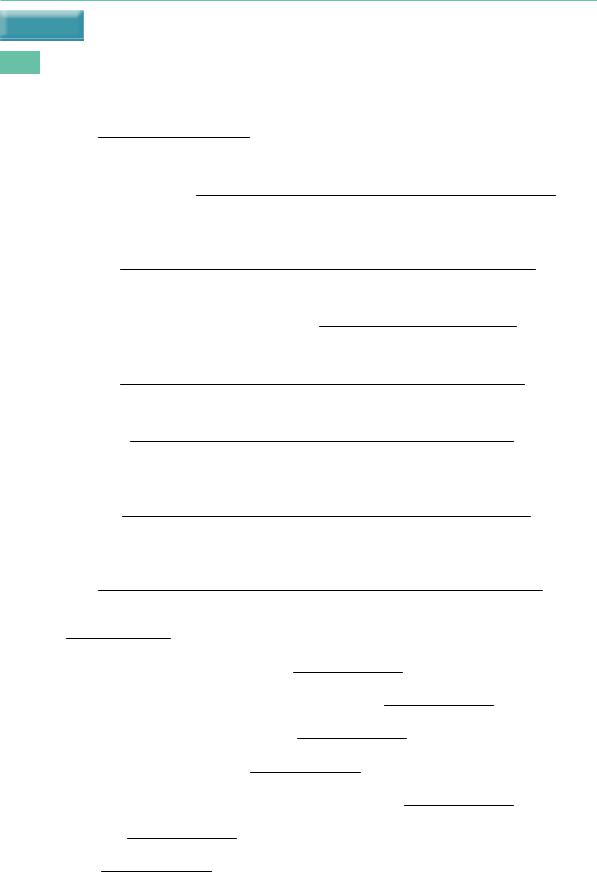
Additional exercises
The future |
Units 19–25, Appendix 3 |
10What do you say to Joe in these situations? Use the words given in brackets. Use the present continuous (I am doing), going to or will (I’ll).
1 You have made all your holiday arrangements. Your destination is Jamaica.
JOE: |
Have you decided where to go for your holiday yet? |
|
YOU: |
I’m going to Jamaica. |
(I / go) |
2 You have made an appointment with the dentist for Friday morning. |
||
JOE: |
Shall we meet on Friday morning? |
|
YOU: |
I can’t on Friday. |
(I / go) |
3You and some friends are planning a holiday in Spain. You have decided to rent a car, but you haven’t arranged this yet.
JOE: How do you plan to travel round Spain? By train?
YOU: No, |
(we / rent) |
4Joe reminds you that you have to call your sister. You completely forgot. JOE: Did you call your sister?
YOU: No, I forgot. Thanks for reminding me. |
(I / call / now) |
5You have already arranged to have lunch with Sue tomorrow. JOE: Are you free at lunchtime tomorrow?
YOU: No, |
(have lunch) |
6You are in a restaurant. You and Joe are looking at the menu. Maybe Joe has decided what to have. You ask him.
YOU: What |
? (you / have) |
JOE: I don’t know. I can’t make up my mind.
7Joe is reading, but it’s getting dark. He’s having trouble reading. You turn on the light. JOE: It’s getting dark and it’s hard to read.
YOU: Yes, |
(I / turn on) |
8You and Joe are sitting in a room with the window open. It’s getting cold. You decide to close the window. You stand up and walk towards it.
JOE: What are you doing?
|
|
YOU: |
|
|
|
|
|
|
|
(I / close) |
|
|
|
|
|
||||||
11 |
Choose the best alternative. |
|
|
|
|
|||||
1 |
‘ Are you doing |
anything tomorrow evening?’ |
‘No, why?’ |
|
||||||
|
|
A Do you do |
B Are you doing |
C Will you do |
(B is the best alternative) |
|
||||
2 |
‘I can’t open this bottle.’ |
‘Give it to me. |
it.’ |
|
||||||
|
|
A I open |
B I’ll open |
C I’m going to open |
|
|
||||
3 |
‘Is Emily here yet?’ |
‘Not yet. I’ll let you know as soon as |
.’ |
|||||||
|
|
A she arrives |
B she’s arriving |
|
C she’ll arrive |
|
|
|||
4 |
‘Are you free tomorrow at ernoon?’ |
‘No, |
.’ |
|
||||||
|
|
A I work |
B I’m working |
C I’ll work |
|
|
||||
5 |
‘What time is the film tonight?’ |
‘ |
|
at 8.40.’ |
|
|||||
|
|
A It starts |
B It’s going to start |
C It will start |
|
|
||||
6 |
‘Are you going to the beach tomorrow?’ ‘Yes, if the weather |
good.’ |
||||||||
|
|
A is going to be |
|
B will be |
C is |
|
|
|
||
7 |
‘What time |
|
|
|
|
tomorrow?’ ‘How about 8.30?’ |
|
|||
|
|
A do we meet |
B are we meeting |
C shall we meet |
|
|||||
8 |
‘When |
|
|
|
?’ |
‘Tomorrow.’ |
|
|
||
|
|
A does the festival finish |
B is the festival finished |
C is the festival finishing |
||||||
308

Additional exercises
12Put the verb into the most suitable form. Sometimes there is more than one possibility.
1 A has decided to learn a language.
a:I’ve decided to try and learn a foreign language.
b: Have you? Which language (1) |
are you going to learn (you / learn)? |
a: Spanish. |
|
b: (2) |
(you / do) a course? |
a: Yes, (3) |
(it / start) next week. |
b: That’s great. I’m sure (4) |
(you / enjoy) it. |
a: I hope so. But I think (5) |
(it / be) dif icult. |
2A wants to know about B’s holiday plans.
a:I hear (1)
b:That’s right. (2)
a:I hope (3)
b:Thanks. (4)
(5)
(you / go) on holiday soon. (we / go) to Finland.
(you / have) a nice time.
(I / get) in touch with you when
(I / get) back and maybe we can meet sometime.
3 A invites B to a party. |
|
|
a: (1) |
(I / have) a party next Saturday. Can you come? |
|
b: On Saturday? I’m not sure. Some friends of mine (2) |
(come) to |
|
stay with me next week, but I think (3) |
(they / leave) by |
|
Saturday. But if (4) |
|
(they / be) still here, |
(5) |
(I / not / be) able to come to the party. |
|
a: OK. Well, tell me as soon as (6) |
|
(you / know). |
b: Right. (7) |
(I / call) you during the week. |
|
4A and B are two secret agents arranging a meeting. They are talking on the phone.
a:Well, what time (1) (we / meet)?
b:Come to the cafe by the station at 4 o’clock.
(2) |
(I / wait) for you |
when (3) |
(you / arrive). |
(4) |
(I / sit) by the window |
and (5) |
(I / wear) a bright green sweater. |
a: OK. (6) |
(Agent 307 / come) too? |
b: No, she can’t be there. |
|
a: Oh. (7) |
(I / bring) the documents? |
b: Yes. (8) |
(I / explain) everything when |
(9) |
(I / see) you. And don’t be late. |
a: OK. (10) |
(I / try) to be on time. |
309
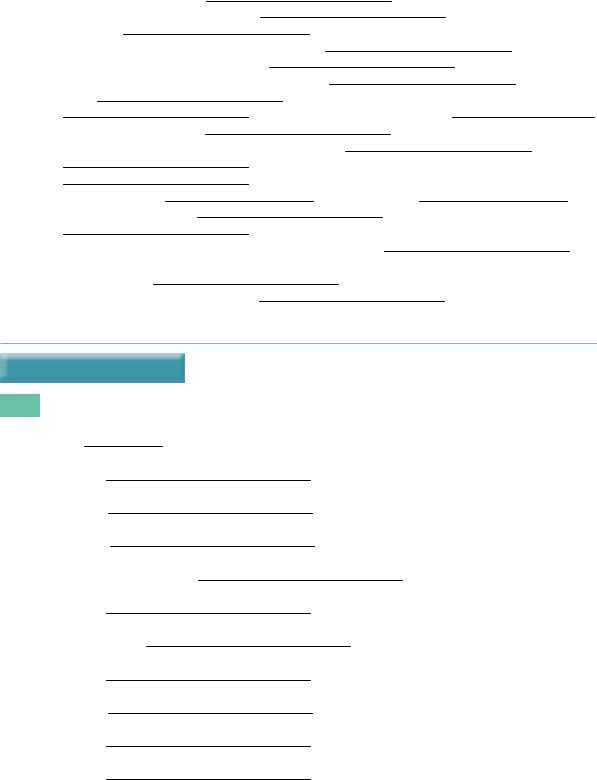
Additional exercises
13 |
Put the verb into the correct form. Choose from the following: |
|
|
present continuous (I am doing) |
will (’ll) / won’t |
|
present simple (I do) |
will be doing |
|
going to (I’m going to do) |
shall |
1 |
I feel a bit hungry. I think |
|
(I / have) something to eat. |
2 |
Why are you putting on your coat? |
|
(you / go) somewhere? |
3 |
What time |
(I / phone) you tomorrow? About 10.30? |
|
4 |
Look! That plane is flying towards the airport. |
(it / land). |
|
5 |
We must do something soon, before |
(it / be) too late. |
|
6 |
I’m sorry you’ve decided to leave the company. |
(I / miss) you |
|
|
when |
(you / go). |
|
7 |
|
(I / give) you my phone number? If |
|
|
(I / give) you my number, |
|
(you / call) me? |
8 |
Are you still watching that programme? What time |
(it / finish)? |
|
9 |
|
(I / go) to a wedding next weekend. My cousin |
|
|
|
(get) married. |
|
10 |
I’m not ready yet. |
(I / tell) you when |
|
|
(I / be) ready. I promise |
|
(I / not / be) very long. |
11 |
|
(I / have) my hair cut tomorrow. I’ve just made an appointment. |
|
12 |
She was very rude to me. I won’t speak to her again until |
||
|
(she / apologise). |
|
|
13 |
I wonder where |
|
(we / live) ten years from now. |
14 |
What are you planning to do when |
(you / finish) your course |
|
|
at college? |
|
|
Past, present and future Units 1–25
14 Use your own ideas to complete B’s sentences.
1 |
a: How did the accident happen? |
|
|
b: I was going too fast and couldn’t stop in time. |
|
2 |
a: Is that a new coat? |
|
|
b: No, I |
it a long time. |
3 |
a: Is that a new phone? |
|
|
b: Yes, I |
it a few weeks ago. |
4 |
a: I can’t talk to you right now. You can see I’m very busy. |
|
|
b: OK. I |
back in about half an hour. |
5 |
a: This is a nice restaurant. Do you come here ot en? |
|
|
b: No, it’s the first time I |
here. |
6 |
a: Do you do any sport? |
|
|
b: No, I |
football, but I gave it up. |
7 |
a: I’m sorry I’m late. |
|
|
b: That’s OK. I |
long. |
8 |
a: When you went to the US last year, was it your first visit? |
|
|
b: No, I |
there twice before. |
9 |
a: Do you have any plans for the weekend? |
|
|
b: Yes, I |
to a party on Saturday night. |
10 |
a: Do you know what Steve’s doing these days? |
|
|
b: No, I |
him for ages. |
11 |
a: Will you still be here by the time I get back? |
|
|
b: No, I |
by then. |
310
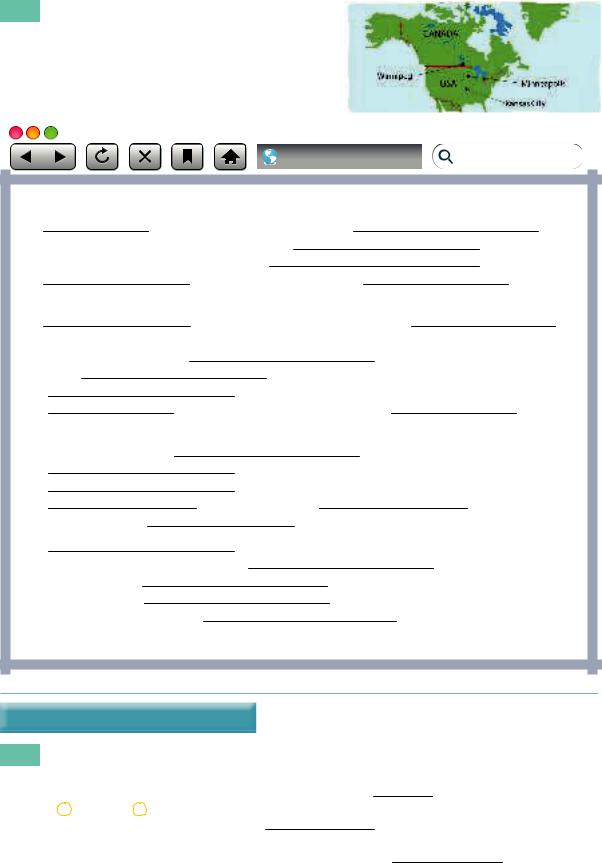
Additional exercises
15Robert is travelling in North America. He sends an email to a friend in Winnipeg (Canada). Put the verb into the most suitable form.
|
|
|
|
|
|
|
|
|
|
|
|
|
|
Hi |
|
|
|
|
|
|
(1) |
I’ve just arrived |
(I / just / arrive) in Minneapolis. (2) |
|
|||
(I / travel) for more than a month now, and (3) |
(I / begin) to |
|||||
think about coming home. Everything (4) |
(I / see) so far |
|||||
(5) |
|
|
|
(be) really interesting, and (6) |
(I / meet) |
|
some really kind people. |
|
|
|
|||
(7) |
|
|
|
(I / leave) Kansas City a week ago. (8) |
|
|
(I / stay) there with Emily, the aunt of a friend from college. She was really helpful and |
||||||
hospitable and although (9) |
|
(I / plan) to stay only a couple of |
||||
days, (10) |
|
|
|
(I / end up) staying more than a week. |
||
(11) |
|
|
|
(I / enjoy) the journey from Kansas City to here. |
||
(12) |
|
(I / take) the Greyhound bus and (13) |
(meet) |
|||
some really interesting people – everybody was really friendly.
So now I’m here, and (14)
(15)
(16)
(17)
know as soon as (19)
(I / stay) here for a few days before (I / continue) up to Canada. I’m not sure exactly when (I / get) to Winnipeg – it depends what happens while
(I / be) here. But (18) (I / let) you (I / know) myself.
(20) |
(I / stay) with a family here – they’re friends of some |
|
people I know at home. Tomorrow (21) |
(we / visit) some people |
|
they know who (22) |
|
(build) a house by a lake. It isn’t |
finished yet, but (23) |
|
(it / be) interesting to see what it’s like. |
Anyway, that’s all for now. (24) |
|
(I / be) in touch again soon. |
Robert
Modal verbs (can/must/would etc.) |
Units 26–36, Appendix 4 |
16Which alternatives are correct? Sometimes only one alternative is correct, and sometimes two of the alternatives are possible.
1 |
‘What time will you be home tonight?’ |
‘I’m not sure. I A or B |
late.’ |
|
A may be B might be C can be (both A and B are correct) |
|
|
2 |
I can’t find the theatre tickets. They |
out of my pocket. |
|
|
A must have fallen B should have fallen C had to fall |
|
|
3 |
Somebody ran in front of the car as I was driving. Luckily, I |
just in time. |
|
|
A could stop B could have stopped |
C managed to stop |
|
311
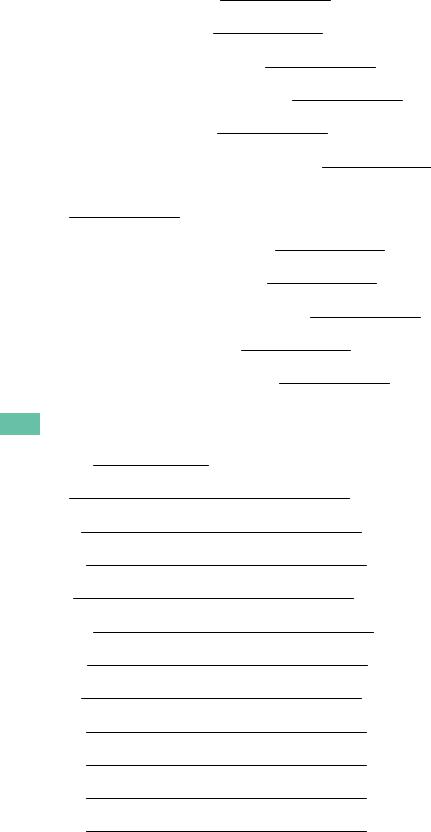
Additional exercises
4 |
We have plenty of time. We |
|
|
yet. |
|||
|
A mustn’t go |
B don’t have to go |
C don’t need to go |
||||
5 |
I didn’t go out yesterday. I |
|
|
|
with my friends, but I didn’t feel like it. |
||
|
A could go |
B could have gone |
C must have gone |
||||
6 |
I looked everywhere for Helen, but I |
|
|
her. |
|||
|
A couldn’t find |
B couldn’t have found |
C wasn’t able to find |
||||
7 |
‘What do you think of my theory?’ |
‘You |
|
right, but I’m not sure.’ |
|||
|
A could be |
B must be |
C might be |
|
|
||
8 |
Our flight was delayed. We |
|
|
for two hours. |
|||
|
A must wait |
B must have waited |
C had to wait |
||||
9 |
I’m not sure whether I’ll be free on Saturday. I |
. |
|||||
|
A must have to work |
B may have to work |
C might have to work |
||||
10 |
At first they didn’t believe me when I told them what had happened, but in the end |
||||||
|
I |
|
them that I was telling the truth. |
||||
|
A was able to convince |
B managed to convince C could convince |
|||||
11 |
I promised I’d call Amy this evening. I |
|
|
||||
|
A mustn’t forget |
B needn’t forget |
C don’t have to forget |
||||
12 |
Why did you leave without me? You |
|
for me. |
||||
|
A must have waited |
B had to wait |
C should have waited |
||||
13 |
Lisa called me this morning. She suggested |
lunch together. |
|||||
|
A we have B we should have |
C to have |
|
||||
14 |
That jacket looks good on you. |
|
|
it more oten. |
|||
|
A You’d better wear |
B You should wear |
C You ought to wear |
||||
15 |
Do you think I should buy a car? What |
|
in my position? |
||||
|
A will you do |
B would you do |
C should you do |
||||
17 Complete the sentences using the words in brackets.
1 |
Don’t phone them now. (might / have) |
|
|
They might be having |
lunch. |
2 |
I ate too much and now I feel sick. (shouldn’t / eat) |
|
|
I |
so much. |
3 |
I wonder why Tom didn’t call me. (must / forget) |
|
|
He |
. |
4 |
Why did you go home so early? (needn’t / go) |
|
|
You |
home so early. |
5 |
You’ve signed the contract. |
(can’t / change) |
|
It |
now. |
6 |
I’m not sure where the children are. (may / watch) |
|
|
They |
TV. |
7 |
I saw Laura standing outside the cinema. (must / wait) |
|
|
She |
for somebody. |
8 |
He was in prison at the time that the crime was committed. (couldn’t / do) |
|
|
He |
it. |
9 |
Why are you so late? (should / be) |
|
|
You |
here an hour ago. |
10 |
Why didn’t you contact me? (could / phone) |
|
|
You |
me. |
11 |
I’m surprised you weren’t told that the road was dangerous. (should / warn) |
|
|
You |
about it. |
12 |
We had a great day at the beach yesterday. (ought / come) |
|
|
You |
with us. |
312
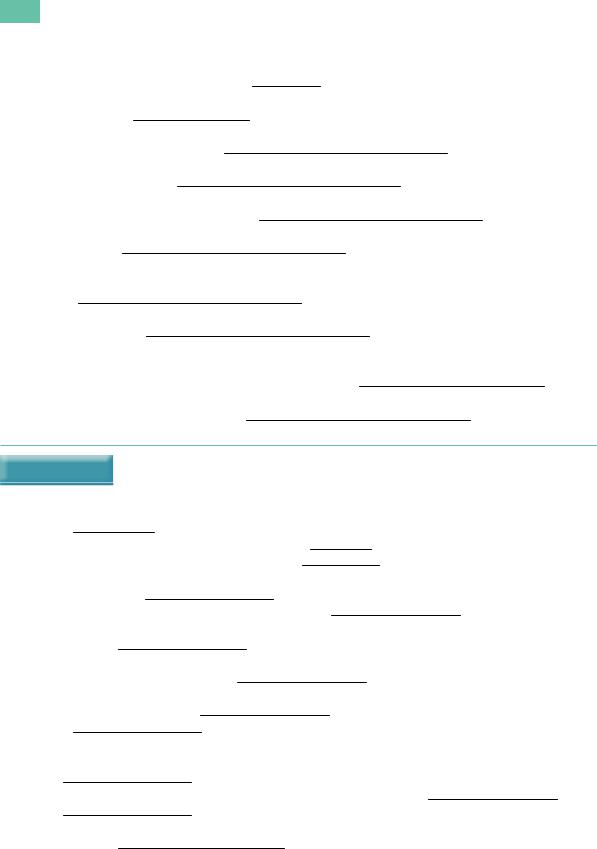
Additional exercises
18Complete B’s sentences using can/could/might/must/should/would + the verb in brackets. In some sentences you need to use have: must have … / should have … etc. In some sentences you need the negative (can’t/couldn’t etc.).
1 |
a: I’m hungry. |
|
|
|
b: But you’ve just had lunch. You |
can’t be |
hungry already. (be) |
2 |
a: I haven’t seen our neighbours for ages. |
|
|
|
b: No. They must have gone |
away. (go) |
|
3 |
a: What’s the weather like? Is it raining? |
|
|
|
b: Not at the moment, but it |
|
later. (rain) |
4 |
a: Where’s Julia? |
|
|
|
b: I’m not sure. She |
|
out. (go) |
5 |
a: I didn’t see you at Michael’s party last week. |
|
|
|
b: No, I had to work that night, so I |
. (go) |
|
6 |
a: I think I saw Ben in town this morning. |
|
|
|
b: No, you |
|
him this morning. He’s away on holiday. (see) |
7a: What time will we get to Sue’s house?
b:Well, it takes about one and a half hours, so if we leave at 3 o’clock, we
|
there by 4.30. (get) |
|
8 |
a: When was the last time you saw Max? |
|
|
b: Years ago. I |
him if I saw him now. (recognise) |
9 |
a: Did you hear the explosion? |
|
|
b: What explosion? |
|
|
a: There was a loud explosion about an hour ago. You |
it. (hear) |
10 |
a: We weren’t sure which way to go. In the end we turned right. |
|
|
b: You went the wrong way. You |
let . (turn) |
if (conditional) |
|
|
Units 25, 38–40 |
|||
|
|
|
|
|||
19 |
Put the verb into the correct form. |
|
|
|
||
1 |
If |
you found a wallet in the street, what would you do with it? (you / find) |
||||
2 |
I’d better hurry. My friend will be annoyed if |
I’m not |
on time. (I / not / be) |
|||
3 |
I didn’t realise that Gary was in hospital. If |
I’d known |
he was in hospital, I would |
|||
|
|
have gone to visit him. (I / know) |
|
|
|
|
4 |
If the doorbell |
, don’t answer it. (ring) |
||||
5 |
I can’t decide what to do. What would you do if |
me? (you / be) |
||||
6 |
a: What shall we do tomorrow? |
|
|
|
||
|
|
b: Well, if |
a nice day, we can go to the beach. (it / be) |
|||
7 |
a: Let’s go to the beach. |
|
|
|
||
|
|
b: No, it’s not warm enough. If |
|
|
warmer, I’d go. (it / be) |
|
8 |
a: Did you go to the beach yesterday? |
|
|
|||
|
|
b: No, it was too cold. If |
|
warmer, we might have gone. (it / be) |
||
9 |
If |
enough money to go anywhere in the world, where would you |
||||
|
|
go? |
(you / have) |
|
|
|
10 |
I didn’t have my phone with me, so I couldn’t call you. I would have called you if |
|||||
|
|
|
my phone. (I / have) |
|
||
11 |
The accident was your fault. If you’d been driving more carefully, |
|||||
|
|
|
. (it / not / happen). |
|
|
|
12 |
a: Why do you watch the news every day? |
|
|
|||
|
|
b: Well, if |
it, I wouldn’t know what was happening in the |
|||
|
|
world. (I / not / watch) |
|
|
|
|
313
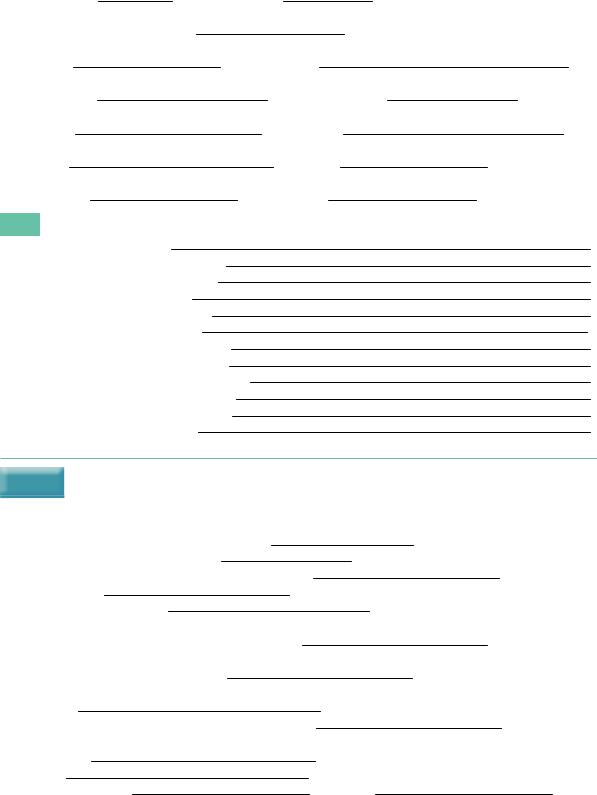
Additional exercises
20 |
Complete the sentences. |
|
|
|
1 |
Lisa is tired all the time. She shouldn’t go to bed so late. |
|
||
|
|
If Lisa didn’t go to bed so late, she wouldn’t be tired all the time. |
|
|
2 |
It’s getting late. I don’t think Sarah will call me now. |
|
||
|
|
I’d be surprised if Sarah |
now. |
|
3 |
I’m sorry I disturbed you. I didn’t know you were busy. |
|
||
|
|
If |
you were busy, I |
you. |
4 |
There are a lot of accidents on this road. There is no speed limit. |
|
||
|
|
There |
so many accidents if |
a speed limit. |
5 |
You didn’t tell me about the problem, so I didn’t try to help you. |
|
||
|
|
If |
the problem, |
you. |
6 |
It started to rain, but fortunately I had an umbrella. |
|
||
|
|
I |
very wet if |
an umbrella. |
7 |
Mark failed his driving test. He was very nervous and that’s why he failed. |
|
||
|
|
If he |
so nervous, he |
the test. |
21 Use your own ideas to complete the sentences.
1 |
I’d go out tonight if |
. |
2 |
I’d have gone out last night if |
. |
3 |
If you hadn’t reminded me, |
. |
4 |
If I had more free time, |
. |
5 |
If you give me the camera, |
. |
6 |
Who would you phone if |
? |
7 |
We wouldn’t have been late if |
. |
8 |
If I’d been able to get a ticket, |
. |
9 |
If I’d done better at the interview, |
. |
10 |
You wouldn’t be hungry now if |
. |
11 |
Cities would be nicer places if |
. |
12 |
If there was no internet, |
. |
Passive |
|
|
|
Units 42–45 |
|
|
|
||||
22 |
Put the verb into the most suitable passive form. |
|
|||
1 |
There’s somebody behind us. I think |
we’re being followed |
(we / follow). |
||
2 |
A mystery is something that can’t be explained (can’t / explain). |
||||
3 |
We didn’t play football yesterday. The game |
|
(cancel). |
||
4 |
The TV |
(repair). It’s working again now. |
|||
5 |
The village church |
|
(restore) at the moment. The work is |
||
|
|
almost finished. |
|
|
|
6 |
The tower is the oldest part of the church. |
|
(it / believe) to be |
||
|
|
over 600 years old. |
|
|
|
7 |
If I didn’t do my job properly, |
|
|
(I / would / fire). |
|
8 |
a: I let a newspaper on the desk last night and it isn’t there now. |
||||
|
|
b: |
|
(it / might / throw) away. |
|
9 |
Joe learnt to swim when he was very young. |
|
(he / teach) by |
||
|
|
his mother. |
|
|
|
10 |
At er |
|
(arrest), I was taken to the police station. |
||
11 |
‘ |
|
(you / ever / arrest)?’ ‘No, never.’ |
||
12 |
Two people |
|
(report) to |
(injure) |
|
in an accident at a factory in Birmingham early this morning.
314
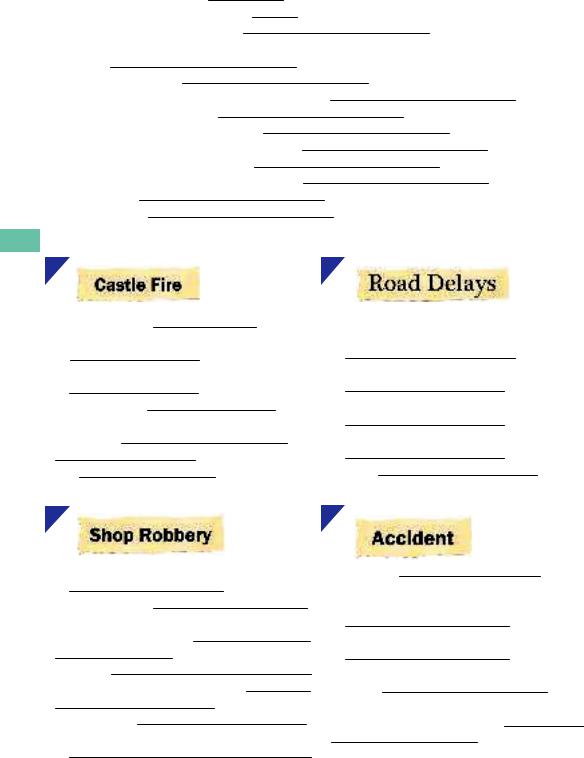
|
|
|
|
|
Additional exercises |
|
|
||||
23 |
Put the verb into the correct form, active or passive. |
|
|||
1 |
This house is quite old. It |
was built (build) over 100 years ago. |
|||
2 |
My grandfather was a builder. He built |
(build) this house many years ago. |
|||
3 |
‘Is your car still for sale?’ |
‘No, I |
|
(sell) it.’ |
|
4 |
a: Is the house at the end of the street still for sale? |
|
|||
|
|
b: No, it |
|
(sell). |
|
5 |
Sometimes mistakes |
|
|
(make). It’s inevitable. |
|
6 |
It’s not a good idea to leave your car unlocked. It |
(might / steal). |
|||
7 |
My bag has disappeared. It |
|
(must / steal). |
||
8 |
I can’t find my umbrella. Somebody |
|
(must / take) it by mistake. |
||
9 |
It’s a serious problem. I don’t know how it |
|
(can / solve). |
||
10 |
We didn’t leave early enough. We |
|
(should / leave) earlier. |
||
11 |
Very oten when I travel by plane, my flight |
|
(delay). |
||
12 |
A new bridge |
|
(build) across the river. Work started last year |
||
|
|
and the bridge |
|
(expect) to open next year. |
|
24 Read these newspaper reports and put the verbs into the most suitable form.
1 |
|
3 |
|
Winton Castle (1) |
was damaged (damage) |
Repair work started yesterday on the |
|
in a fire last night. The fire, which |
Paxham–Longworth road. The road |
||
(2) |
(discover) at about |
(1) |
(resurface) |
9 o’clock, spread very quickly. Nobody |
and there will be long delays. Drivers |
||
(3) |
(injure), but two |
(2) |
(ask) to use |
people had to (4) |
|
an alternative route if possible. The work |
|
(rescue) from an upstairs room. A number of |
(3) |
(expect) to |
|
paintings (5) |
|
last two weeks. Next Sunday the road |
|
|
(believe / destroy). |
(4) |
(close), and |
It (6) |
(not / know) |
trafic (5) |
(divert). |
how the fire started. |
|
|
|
|
|
|
|
2 |
|
4 |
|
In Paxham yesterday a shop assistant |
A woman (1) |
(take) |
|
(1) |
(force) to hand |
to hospital ater her car collided with a |
|
over £500 ater (2) |
|
lorry near Norstock yesterday. She |
|
(threaten) by a man with a knife. The man |
(2) |
(allow) home |
|
escaped in a car which (3) |
later ater treatment. The road |
|
|
|
(steal) earlier in the day. |
(3) |
(block) |
The car (4) |
|
for an hour ater the accident, and trafic |
|
(later / find) in a car park where it (5) |
had to (4) |
(divert). |
|
|
(abandon) by the |
A police inspector said aterwards: ‘The |
|
thief. A man (6) |
|
woman was lucky. She could (5) |
|
(arrest) in connection with the robbery and |
(kill).’ |
|
|
(7) |
|
|
|
(still / question) by the police. |
|
|
|
|
|
|
|
315
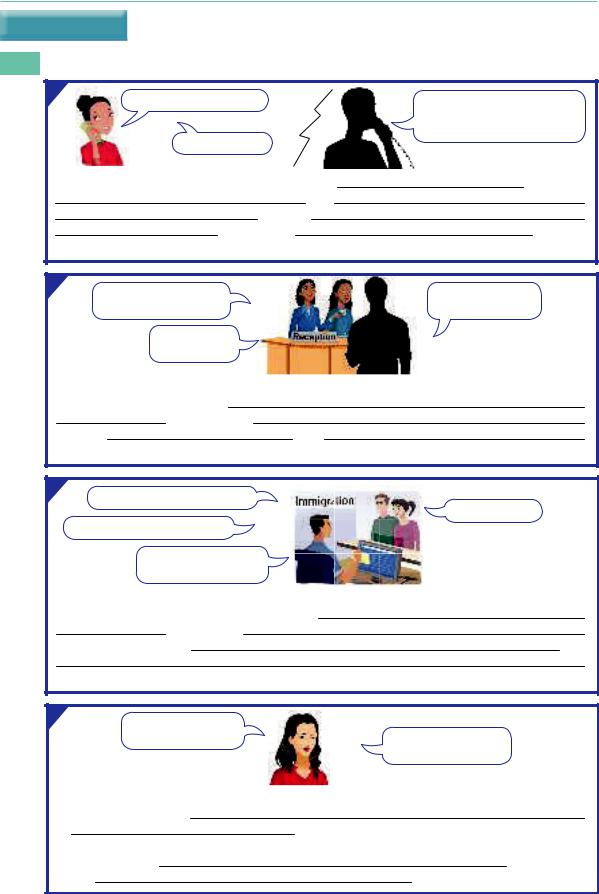
Additional exercises
Reported speech |
Units 47–48, 50 |
25 Complete the sentences using reported speech.
1
Can I speak to Paul, please? |
Paul has gone out. I don’t know |
|
when he’ll be back. |
|
Do you want to leave a message? |
I’ll try again later. |
|
|
YOU |
A woman phoned at lunchtime yesterday and asked |
if she could speak to Paul . I told |
and |
|
. I asked |
|
, but she said |
later. |
But she never did.
2
We have no record of a |
|
Do you have any |
reservation in your name. |
|
rooms free anyway? |
We’re sorry, but |
|
|
the hotel is full. |
|
|
I went to London recently, but my visit didn’t begin well. I had reserved a hotel room, but |
||
when I got to the hotel they told |
|
|
. When I asked |
|
, |
they said |
, but |
. |
There was nothing I could do. I just had to look for somewhere else to stay.
3
Why are you visiting the country?
We’re on holiday. |
|
How long do you intend to stay? |
|
Where will you be |
|
staying during your visit? |
|
Ater getting of the plane, we had to queue for an hour to get through immigration. Finally, |
|
it was our turn. The immigration of icer asked us |
|
, and we told |
. |
Then he wanted to know |
and |
|
. |
He seemed satisfied with our answers, checked our passports and wished us a pleasant stay.
4
I’ll phone you from the |
|
airport when I arrive. |
Don’t come to the |
|
airport. I’ll take the bus. |
SUE
a:What time is Sue arriving this aternoon?
b:About three. She said
|
. |
a: Aren’t you going to meet her? |
|
b: No, she said not |
. She said |
that |
. |
316
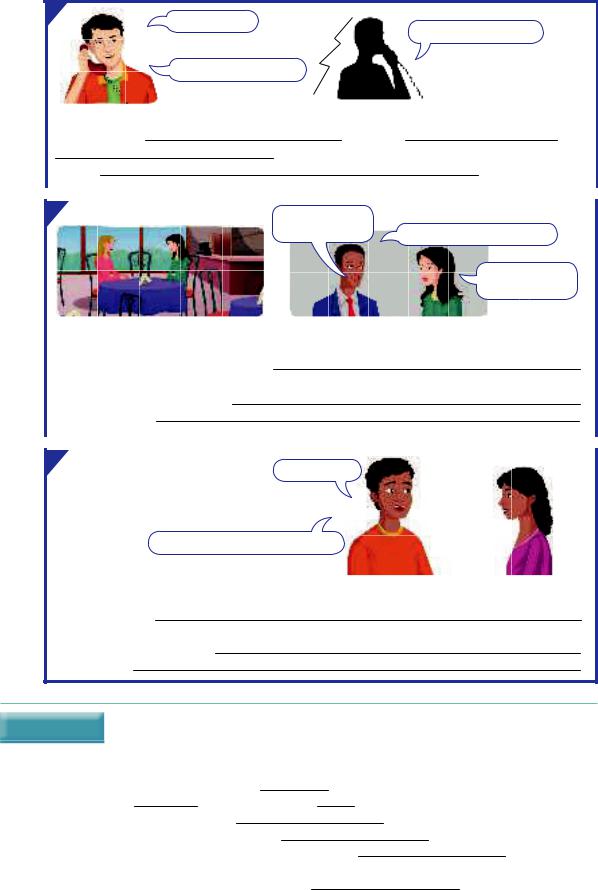
Additional exercises
5
|
|
What’s your job? |
|
|
|
|
|
|
|
Mind your own business! |
|
|
|
How much do you earn? |
|
|
YOU |
|
|
|
|
|
|
A few days ago a man phoned from a marketing company and started asking me questions. He |
|||||
wanted to know |
|
and asked |
|||
|
|
. I don’t like people phoning and asking questions like that, |
|||
so I told |
|
|
|
and ended the call. |
|
|
|
|
|
|
|
|
|
|
|
|
|
6 |
|
I’ll be at the |
|
|
|
|
|
EARLIER |
|
||
NOW |
|
|
|||
|
|
|
|||
|
|
||||
|
|
|
|
|
|
|
|
|
restaurant at 7.30. |
I know where the restaurant is. |
|
|
|
|
|
|
|
|
|
Phone me if |
|
|
|
|
there’s a problem. |
|
LOUISE |
SARAH |
PAUL |
SARAH |
Sarah and Louise are in a restaurant waiting for Paul. |
|
|||
SaRaH: |
I wonder where Paul is. He said |
|
. |
|
LOUISE: |
Maybe he got lost. |
|
|
|
SaRaH: |
I don’t think so. He said |
|
. |
|
|
And I told |
|
|
. |
|
|
|
|
|
|
|
|
|
|
7 |
|
|
I’m not hungry. |
|
|
|
|
|
|
I don’t like bananas, so don’t buy any.
JOE |
JANE |
Five minutes later |
|
JOE: Is there anything to eat? |
|
JaNE: You just said |
. |
JOE: Well, I am now. I’d love a banana. |
|
JaNE: A banana? But you said |
. |
You told |
. |
-ing and to … |
|
Units 53–66 |
||
|
|
|
||
26 |
Put the verbs into the correct form. |
|
|
|
1 |
How old were you when you learnt to drive |
? (drive) |
||
2 |
I don’t mind walking home, but I’d rather |
get |
a taxi. (walk, get) |
|
3 |
I can’t make a decision. I keep |
|
my mind. (change) |
|
4 |
He had made his decision and refused |
|
his mind. (change) |
|
5 |
Why did you change your decision? What made you |
your mind? |
||
|
|
(change) |
|
|
6 |
It was a really good holiday. I really enjoyed |
|
by the sea again. (be) |
|
317
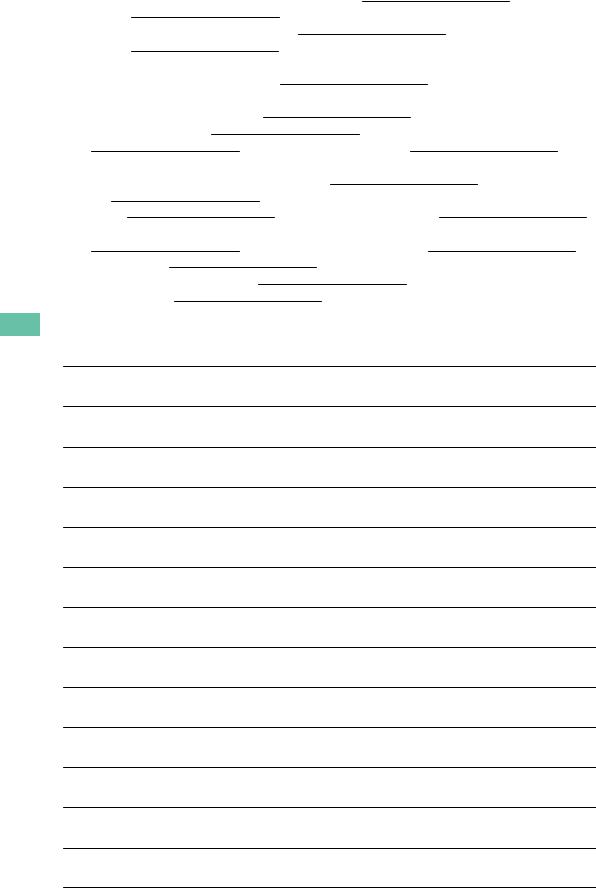
Additional exercises
7 |
Did I really tell you I was unhappy? I don’t remember |
that. (say) |
|
8 |
‘Remember |
Tom tomorrow.’ |
‘OK. I won’t forget.’ (call) |
9 |
The water here is not very good. I’d avoid |
it if I were you. (drink) |
|
10 |
I pretended |
interested in the conversation, but really it was very |
|
|
boring. (be) |
|
|
11 |
I got up and looked out of the window |
what the weather was |
|
|
like. (see) |
|
|
12 |
I don’t have far to go. It’s not worth |
a taxi. (take) |
|
13 |
I have a friend who claims |
able to speak five languages. (be) |
|
14 |
I like |
carefully about things before |
|
|
a decision. (think, make) |
|
|
15 |
I had a flat in the centre of town but I didn’t like |
there, so I |
|
|
decided |
. (live, move) |
|
16 |
Steve used |
a footballer. He had to stop |
|
|
because of an injury. (be, play) |
|
|
17 |
Ater |
by the police, the man admitted |
|
|
the car but denied |
at 100 miles an hour. (stop, steal, drive) |
|
18 |
a: How do you make this machine |
? (work) |
|
|
b: I’m not sure. Try |
that button and see what happens. (press) |
|
27Make sentences from the words in brackets.
1 I can’t find the tickets. (I / seem / lose / them)
I seem to have lost them.
2 I don’t have far to go. (it / not / worth / take / a taxi)
It’s not worth taking a taxi.
3 I’m feeling a bit tired. (I / not / fancy / go / out)
4 James isn’t very reliable. (he / tend / forget / things)
5 I’ve got a lot of luggage. (you / mind / help / me?)
6 There’s nobody at home. (everybody / seem / go out)
7 We don’t like our apartment. (we / think / move)
8 The vase was very valuable. (I / afraid / touch / it)
9 I wanted to get to the station in plenty of time. (I / afraid / miss / my train)
10I don’t recommend the movie. (it / not / worth / see)
11I’m very tired ater that long walk. (I / not / used / walk / so far)
12Sue is on holiday. She called me yesterday and sounded happy. (she / seem / enjoy / herself)
13Dan took lots of pictures while he was on holiday. (he / insist / show / them to me)
14I don’t want to do the shopping. (I’d rather / somebody else / do / it)
318
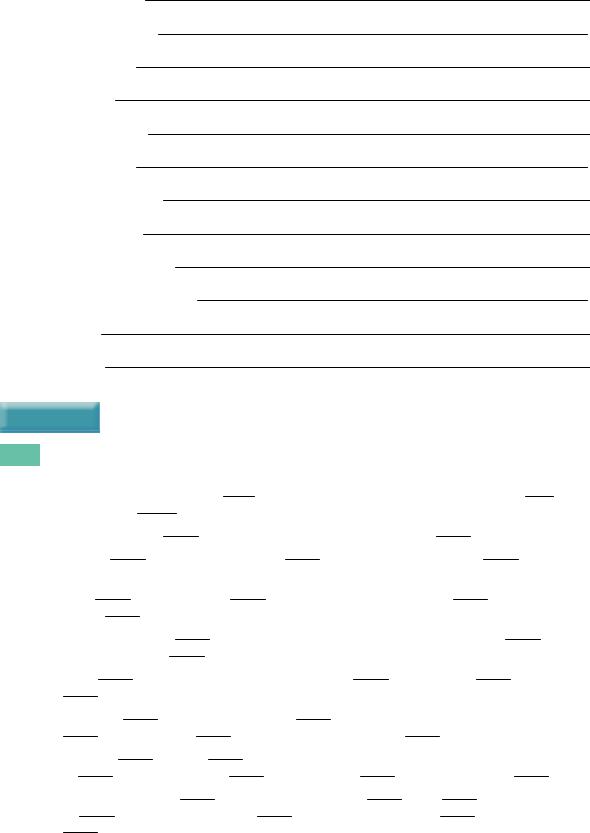
|
|
|
|
Additional exercises |
|
|
|
|
|||
28 |
Complete the second sentence so that the meaning is similar to the first. |
|
|
||
1 |
I was surprised I passed the exam. |
|
|
||
|
|
I didn’t expect |
to pass the exam |
. |
|
2 |
Did you manage to solve the problem? |
|
|
||
|
|
Did you succeed |
in solving the problem |
? |
|
3 |
I don’t read newspapers any more. |
|
|
||
|
|
I’ve given up |
|
. |
|
4 |
I’d prefer not to go out tonight. |
|
|
||
|
|
I’d rather |
|
. |
|
5 |
He finds it dif icult to sleep at night. |
|
|
||
|
|
He has trouble |
|
. |
|
6 |
Shall I phone you this evening? |
|
|
||
|
|
Do you want |
|
? |
|
7 |
Nobody saw me come in. |
|
|
||
|
|
I came in without |
. |
|
|
8 |
Some people said I was a cheat. |
|
|
||
|
|
I was accused |
|
. |
|
9 |
It will be good to see them again. |
|
|
||
|
|
I’m looking forward |
. |
|
|
10 |
What do you think I should do? |
|
|
||
|
|
What do you advise me |
? |
|
|
11 |
It’s a pity I couldn’t go out with you last night. |
|
|
||
|
|
I’d like |
|
. |
|
12 |
I wish I’d taken your advice. |
|
|
||
|
|
I regret |
|
. |
|
|
|
|
|
|
|
a/an and the |
|
Units 69–78 |
|||
29Put in a/an or the where necessary. Leave the space empty if the sentence is already complete.
1 |
I don’t usually like staying at – |
hotels, but last summer we spent two weeks at |
a very |
||||
|
nice hotel by |
the |
sea. |
|
|
|
|
2 |
If you go to live in |
foreign country, you should try and learn |
language. |
||||
3 |
Helen is |
economist. She lives in |
United States and works for |
investment |
|||
|
company. |
|
|
|
|
|
|
4 |
I love |
sport, especially |
tennis. I play two or three times |
week if I can, but |
|||
|
I’m not |
very good player. |
|
|
|
|
|
5I won’t be home for and we’re going to
dinner this evening. I’m meeting some friends at er |
work |
cinema. |
|
6 |
When |
|
unemployment is high, it’s dif icult for |
people to find |
work. It’s |
||||
|
|
big problem. |
|
|
|
|
|
|
|
7 |
There was |
accident as I was going |
home last night. Two people were taken to |
||||||
|
|
hospital. I think |
|
most accidents are caused by |
people driving too fast. |
||||
8 |
A: What’s |
name of |
|
hotel where you’re staying? |
|
|
|||
|
b: |
Ambassador. It’s in |
Queen Street in |
city centre. It’s near |
station. |
||||
9 |
I have two brothers. |
older one is training to be |
pilot. |
younger one is still |
|||||
|
at |
|
school. When he leaves |
school, he wants to go to |
university to study |
||||
|
|
law. |
|
|
|
|
|
|
|
319
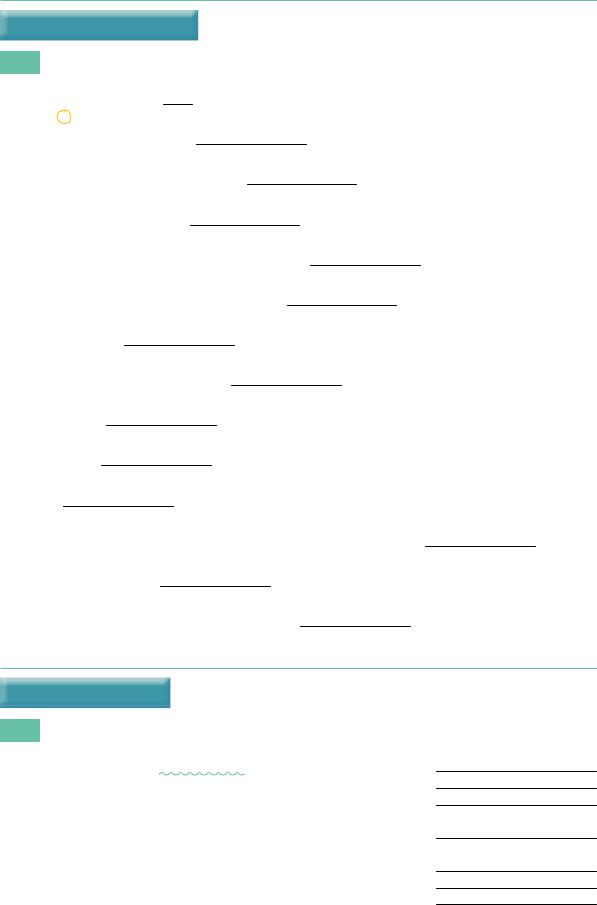
Additional exercises
Pronouns and determiners |
Units 82–91 |
30Which alternatives are correct? Sometimes only one alternative is correct, and sometimes two alternatives are possible.
1 |
I don’t remember |
A |
about the accident. (A is correct) |
|
|||||||
|
A anything |
B something |
|
C nothing |
|
|
|||||
2 |
Chris and I have known |
|
|
|
|
for quite a long time. |
|||||
|
A us |
B each other |
C ourselves |
|
|
|
|||||
3 |
‘How ot en do the buses run?’ |
‘ |
|
twenty minutes.’ |
|||||||
|
A All |
B Each |
|
C Every |
|
|
|
|
|
||
4 |
I shouted for help, but |
|
|
|
|
came. |
|
||||
|
A nobody |
B no-one |
C anybody |
|
|
|
|||||
5 |
Last night we went out with some friends of |
. |
|||||||||
|
A us |
B our |
|
C ours |
|
|
|
|
|
|
|
6 |
It didn’t take us a long time to get here. |
|
traf ic. |
||||||||
|
A It wasn’t much |
|
B There wasn’t much |
C It wasn’t a lot |
|
||||||
7 |
Can I have |
|
|
|
|
|
milk in my cof ee, please? |
|
|||
|
A a little |
B any |
C some |
|
|
|
|
||||
8 |
Sometimes I find it dif icult to |
|
|
. |
|
||||||
|
A concentrate |
|
B concentrate me |
C concentrate myself |
|
||||||
9 |
There’s |
|
|
|
|
|
on at the cinema that I want to see, so there’s no point in going. |
||||
|
A something |
B anything |
|
C nothing |
|
|
|||||
10 |
I drink |
|
|
|
|
|
water every day. |
|
|||
|
A much |
B a lot of |
C lots of |
|
|
|
|||||
11 |
|
|
|
|
in the city centre are open on Sunday. |
|
|||||
|
A Most of shops |
|
B Most of the shops |
|
C The most of the shops |
||||||
12 |
There were about twenty people in the photo. I didn’t recognise |
of them. |
|||||||||
|
A any |
B none |
|
C either |
|
|
|
|
|||
13 |
I’ve been waiting |
|
|
|
|
for Sarah to phone. |
|
||||
|
A all morning |
|
B the whole morning |
|
C all the morning |
|
|||||
14 |
I can’t af ord to buy anything in this shop. |
so expensive. |
|||||||||
|
A All is |
B Everything is |
C All are |
|
|
|
|||||
Adjectives and adverbs Units 98–108
31There are mistakes in some of these sentences. Correct the sentences where necessary. Write ‘OK’ if the sentence is already correct.
1 The building was total destroyed in the fire.
2 I didn’t like the book. It was such a stupid story.
3 The city is very polluted. It’s the more polluted place I’ve ever been to.
4 I was disappointing that I didn’t get the job. I was well-qualified and the interview went well.
5 It’s warm today, but there’s quite a strong wind.
6 Joe works hardly, but he doesn’t get paid very much. 7 The company’s of ices are in a modern large building.
totally destroyed OK
320
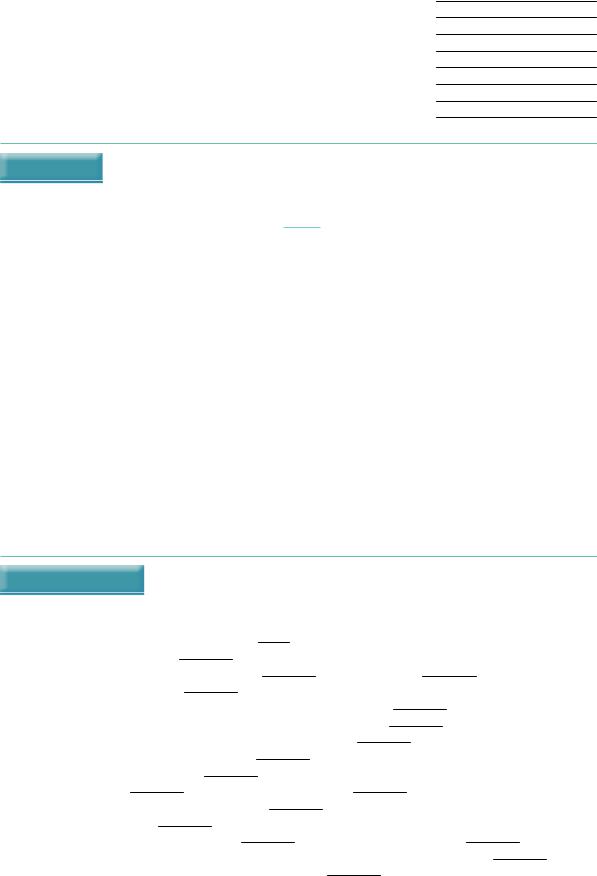
Additional exercises
8 Dan is a very fast runner. I wish I could run as fast as him. 9 I missed the three last days of the course because I was ill. 10 You don’t look happy. What’s the matter?
11 The weather has been unusual cold for the time of the year. 12 The water in the pool was too dirty to swim in it.
13 I got impatient because we had to wait so long time. 14 Is this box big enough or do you need a bigger one? 15 This morning I got up more early than usual.
Conjunctions |
Units 25, 38, 112–118 |
||||
|
|
|
|
||
32 |
Which is correct? |
|
|||
1 |
I’ll try to be on time, but don’t worry if / |
when |
I’m late. (if is correct) |
|
|
2 |
Don’t throw that bag away. If / When you don’t want it, I’ll have it. |
|
|||
3 |
Please report to reception if / when you arrive at the hotel. |
|
|||
4 |
We’ve arranged to go to the beach tomorrow, but we won’t go if / when it’s raining. |
||||
5 |
Tanya is in her final year at school. She still doesn’t know what she’s going to do if / when |
||||
|
|
she leaves. |
|
||
6 |
What would you do if / when you lost your keys? |
|
|||
7 |
I hope I’ll be able to come to the party, but I’ll let you know if / unless I can’t. |
||||
8 |
I don’t want to be disturbed, so don’t phone me if / unless it’s something important. |
||||
9 |
Please sign the contract if / unless you’re happy with the conditions. |
|
|||
10I like travelling by ship as long as / unless the sea is not rough.
11You might not remember the name of the hotel, so write it down if / in case you forget it.
12It’s not cold now, but take your coat with you if / in case it gets cold later.
13Take your coat with you and then you can put it on if / in case it gets cold later.
14They always have the TV on, even if / if nobody is watching it.
15Even / Although I let home early, I got to work late.
16Despite / Although we’ve known each other a long time, we’re not particularly close friends.
17 ‘When did you leave school?’ ‘As / When I was 17.’
18 I think Amy will be very pleased as / when she hears the news.
Prepositions (time) |
|
|
|
|
|
|
|
Units 12, 119–122 |
|||
|
at |
on |
in |
during |
for |
since |
by |
until |
|||
33 |
Put in one of the following: |
||||||||||
1 |
Jack has gone away. He’ll be back |
in |
a week. |
|
|
|
|
||||
2 |
We’re having a party |
|
Saturday. Can you come? |
|
|
|
|
||||
3 |
I’ve got an interview next week. It’s |
|
Tuesday morning |
9.30. |
|
||||||
4 |
Sue isn’t usually here |
|
weekends. She goes away. |
|
|
|
|||||
5 |
The train service is very good. The trains are nearly always |
time. |
|
||||||||
6 |
It was a confusing situation. Many things were happening |
|
the same time. |
||||||||
7 |
I couldn’t decide whether or not to buy the sweater. |
|
the end I decided not to. |
||||||||
8 |
The road is busy all the time, even |
|
|
night. |
|
|
|
|
|||
9 |
I met a lot of nice people |
|
my stay in New York. |
|
|
|
|
||||
10 |
I saw Helen |
Friday, but I haven’t seen her |
|
then. |
|
|
|||||
11 |
Robert has been doing the same job |
|
five years. |
|
|
|
|
||||
12 |
Lisa’s birthday is |
|
the end of March. I’m not sure exactly which day it is. |
|
|||||||
13 |
We have friends staying with us |
|
the moment. They’re staying |
|
Friday. |
||||||
14 |
If you’re interested in applying for the job, your application must be received |
Friday. |
|||||||||
15 |
I’m just going out. I won’t be long – I’ll be back |
ten minutes. |
|
|
|||||||
321

Additional exercises
Prepositions (position and other uses) |
|
|
|
Units 123–128 |
||||
|
|
|
|
|
|
|||
34 |
Put in the missing preposition. |
|
|
|
|
|
||
1 |
I’d love to be able to visit every country |
the world. |
|
|||||
2 |
Jessica White is my favourite author. Have you read anything |
her? |
||||||
3 |
There’s a small shop |
the end of this road. |
|
|
||||
4 |
Tom is away at the moment. He’s |
holiday. |
|
|
||||
5 |
We live |
the country, a long way from the nearest town. |
|
|||||
6 |
I’ve got a stain |
my jacket. I’ll have to have it cleaned. |
|
|||||
7 |
We went |
a party |
|
Lisa’s house on Saturday. |
|
|||
8 |
Boston is |
the east coast of the United States. |
|
|||||
9 |
Look at the leaves |
that tree. They’re a beautiful colour. |
|
|||||
10 |
I’ve never been |
Japan, but I’d like to go very much. |
|
|||||
11 |
Mozart died |
Vienna in 1791 |
the age of 35. |
|
||||
12 |
‘Are you |
this photo?’ |
‘Yes, that’s me, |
|
the let .’ |
|||
13 |
We went |
the theatre last night. We had seats |
the front row. |
|||||
14 |
If you want to turn the light on, the switch is |
|
the wall |
the door. |
||||
15 |
It was late when we arrived |
|
the hotel. |
|
|
|
||
16 |
I couldn’t decide what to eat. There was nothing |
|
the menu that I liked. |
|||||
17 |
We live |
a tower block. Our apartment is |
the fit eenth floor. |
|||||
18 |
Some parts of the film were a bit stupid, but |
|
the whole I enjoyed it. |
|||||
19 |
‘When you paid the restaurant bill, did you pay cash?’ |
‘No, I paid |
credit card.’ |
|||||
20 |
‘How did you get here? Did you come |
the bus?’ ‘No, |
car.’ |
|||||
21 |
I watched a really interesting programme |
TV last night. |
|
|||||
22 |
Helen works for a large company. She works |
|
the customer services department. |
|||||
23 |
Anna spent two years working |
|
London before returning |
Italy. |
||||
24 |
How was your trip |
the beach? Did you have a good day? |
||||||
25 |
On our first day in Paris, we went |
a trip round the city. |
|
|||||
Noun/adjective + preposition |
|
|
Units 129–131 |
||||
|
|
|
|
|
|||
35 |
Put in the missing preposition. |
|
|
|
|
||
1 |
The plan has been changed, but nobody seems to know the reason |
this. |
|
||||
2 |
Don’t ask me to decide. I’m not very good |
making decisions. |
|
||||
3 |
Some people say that Sue is unfriendly, but she’s always very nice |
me. |
|
||||
4 |
What do you think is the best solution |
the problem? |
|
|
|
||
5 |
Recently there has been a big increase |
the number of tourists visiting the city. |
|
||||
6 |
He lives a rather lonely life. He doesn’t have much contact |
|
other people. |
|
|||
7 |
Paul is a keen photographer. He likes taking pictures |
people. |
|
||||
8 |
Michael got married |
a woman he met when he was studying at college. |
|
||||
9 |
He’s very brave. He’s not scared |
anything. |
|
|
|
||
10 |
I’m surprised |
the traf ic today. I didn’t think it would be so busy. |
|
||||
11 |
Thank you for lending me the guidebook. It was full |
useful information. |
|
||||
12 |
I’m afraid I’ve had to change my plans, so I can’t meet you tomorrow. I’m sorry |
that. |
|||||
322
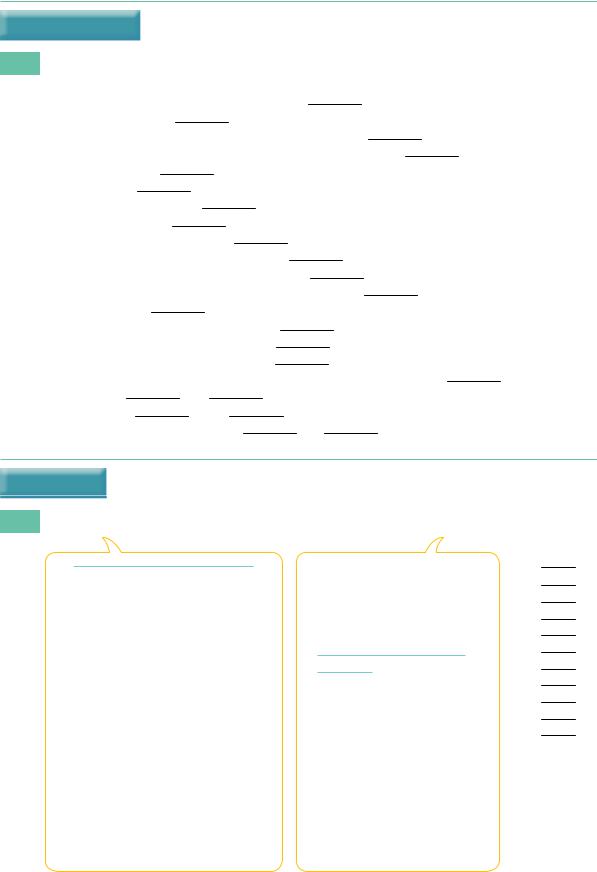
Additional exercises
Verb + preposition |
Units 132–136 |
36Complete each sentence with a preposition where necessary. If no preposition is necessary, leave the space empty.
1 |
She works quite hard. You can’t accuse her |
being lazy. |
|
|||
2 |
Who’s going to look |
your children while you’re at work? |
|
|||
3 |
The problem is becoming serious. We have to discuss |
it. |
|
|||
4 |
The problem is becoming serious. We have to do something |
it. |
|
|||
5 |
I prefer this chair |
the other one. It’s more comfortable. |
|
|||
6 |
I need to call |
the of ice to tell them I won’t be at work today. |
|
|||
7 |
The river divides the city |
two parts. |
|
|
|
|
8 |
‘What do you think |
your new boss?’ |
‘She’s all right, I suppose.’ |
|
||
9 |
Can somebody please explain |
me what I have to do? |
|
|
||
10 |
I said hello to her, but she didn’t answer |
me. |
|
|
||
11 |
‘Do you like staying at hotels?’ |
‘It depends |
the hotel.’ |
|
||
12 |
‘Have you ever been to Borla?’ |
‘No, I’ve never heard |
it. Where is it?’ |
|
||
13 |
You remind me |
somebody I knew a long time ago. You look just like her. |
||||
14 |
This is wonderful news! I can’t believe |
it. |
|
|
||
15 |
George is not an idealist – he believes |
being practical. |
|
|
||
16 |
What’s funny? What are you laughing |
? |
|
|
||
17 |
What did you do with all the money you had? What did you spend it |
? |
||||
18 |
If Alex asks |
you |
money, don’t give him any. |
|
|
|
19 |
I apologised |
Sarah |
keeping her waiting so long. |
|
||
20 |
Lisa was very helpful. I thanked |
her |
everything she’d done. |
|||
Phrasal verbs Units 137–145
37 A says something and B replies. Which goes with which?
A
1 I’ve made a mistake on this form.
2 I’m too warm with my coat on.
3 This jacket looks nice.
4 Your reference number is 318044BK.
5 This room is in a mess.
6 What’s 45 euros in dollars?
7 How was the mistake discovered?
8I’m not sure whether to accept their ofer or not.
9I need a place to stay when I’m in London.
10It’s a subject he doesn’t like to talk about.
11I don’t know what this word means.
B
a Don’t worry. I’ll clear it up.
bThat won’t be a problem. I can fix it up.
c Kate pointed it out.
dThat’s OK. Cross it out and correct it.
e Yes, why don’t you try it on?
f OK, I won’t bring it up.
g Just a minute. I’ll write it down.
h Why don’t you take it of then?
i You can look it up.
j I think you should turn it down.
kGive me a moment. I’ll work it out.
1 d
2
3
4
5
6
7
8
9
10
11
323

Additional exercises
38 Only one alternative is correct. Which is it?
1 |
Nobody believed Paul at first but he |
B to be right. (B is correct) |
||||||
|
A came out |
B turned out |
C worked out D carried out |
|||||
2 |
Here’s some good news. It will |
|
|
. |
|
|
||
|
A turn you up |
B put you up |
C blow you up |
D cheer you up |
||||
3 |
The children were behaving badly, so I |
|
. |
|
||||
|
A told them up B told them of |
C told them out |
D told them over |
|||||
4 |
The club committee is |
|
|
of the president, the secretary and seven other members. |
||||
|
A set up B made up |
C set out |
D made out |
|
|
|||
5 |
Why did you decide not to apply for the job? What |
|
? |
|||||
|
A put you of |
B put you out |
C turned you of |
D turned you away |
||||
6 |
I had no idea that he was lying to me. I was completely |
. |
||||||
|
A taken in |
B taken down |
C taken of |
D taken over |
||||
7 |
Helen started a course at college, but she |
|
|
ater six months. |
||||
|
A went out |
B fell out |
C turned out |
D dropped out |
||||
8 |
You can’t predict everything. Oten things don’t |
|
as you expect. |
|||||
|
A make out |
B break out |
|
C turn out |
D get out |
|
||
9 |
What’s all this noise? What’s |
|
|
? |
|
|
||
|
A going of |
B getting of |
|
C going on |
D getting on |
|||
10 It’s a very busy airport. There are planes A going up B taking of C getting up
or landing every few minutes. D driving of
11 |
The road was blocked by a bus that had |
. |
|
|
A broken down |
B dropped out C driven of |
D held up |
12 |
How are you |
in your new job? Are you enjoying it? |
|
|
A keeping on |
B going on C carrying on D getting on |
|
39 Complete the sentences. Use two words each time.
1 |
Keep away from the edge of the pool. You might fall in. |
|
|
2 |
I didn’t notice that the two pictures were diferent until Amy pointed it |
me. |
|
3 |
I asked Max if he had any suggestions about what we should do, but he didn’t come |
||
|
anything. |
|
|
4 |
I’m glad Sarah is coming to the party. I’m really looking |
seeing her again. |
|
5 |
Things are changing all the time. It’s dificult to keep |
all these changes. |
|
6 |
I don’t want to run |
food for the party. Are you sure we have enough? |
|
7 |
We had a short break and then carried |
our work. |
|
8 |
I’ve had enough of being treated like this. I’m not going to put |
it any more. |
|
9 |
I didn’t enjoy the trip very much at the time, but when I look |
it now, |
|
|
I realise it was a good experience and I’m glad I went on it. |
|
|
10 |
The wedding was supposed to be a secret, so how did you find |
it? |
|
|
Who told you? |
|
|
11 |
There is a very nice atmosphere in the ofice where I work. Everybody gets |
|
|
|
everybody else. |
|
|
324
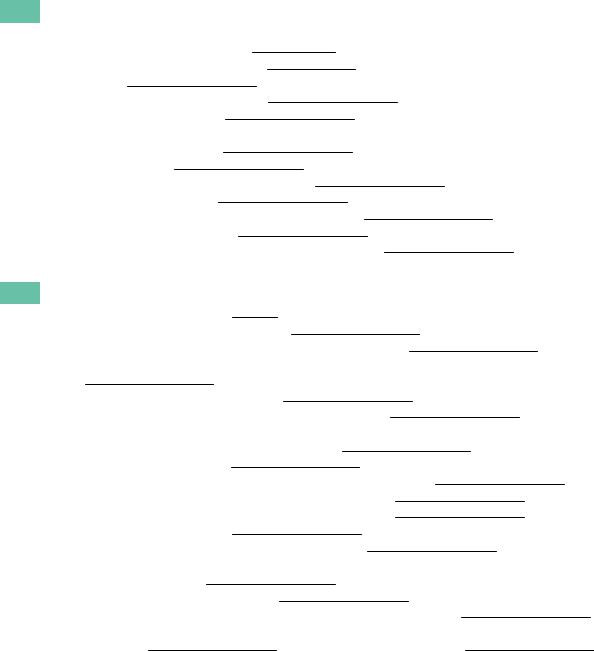
Additional exercises
40Complete each sentence using a phrasal verb that has a similar meaning to the words in brackets.
1 |
The concert in the park had to be |
called off |
because of the weather. (cancelled) |
||
2 |
The story Kate told wasn’t true. She made it up . (invented it) |
|
|||
3 |
Paul finally |
an hour late. (arrived) |
|
||
4 |
Here’s an application form. Can you |
|
and sign it, please? |
(complete it) |
|
5 |
Some houses will have to be |
|
to make way for the new |
|
|
|
road. (demolished) |
|
|
|
|
6 |
Be positive! You must never |
|
! |
(stop trying) |
|
7 |
I was very tired and |
in front of the TV. (fell asleep) |
|
||
8 |
Ater eight years together, they’ve decided to |
|
. (separate) |
|
|
9 |
The noise is terrible. I can’t |
|
any longer. (tolerate it) |
|
|
10 |
We don’t have a lot of money, but we have enough to |
. (manage) |
|||
11 |
I’m sorry I’m late. The meeting |
|
|
longer than I expected. (continued) |
|
12 |
We need to make a decision today at the latest. We can’t |
any |
|||
|
longer. (delay it) |
|
|
|
|
41 Complete the sentences. Use one word each time.
1 |
You’re driving too fast. Please slow |
down. |
|
|
|
2 |
It was only a small fire and I managed to |
it out with a bucket of water. |
|||
3 |
The house is empty right now, but I think the new tenants are |
in |
|
||
|
next week. |
|
|
|
|
4 |
I’ve |
on weight. My clothes don’t fit any more. |
|
||
5 |
Their house is really nice now. They’ve |
|
it up really well. |
|
|
6 |
I was talking to the woman next to me on the plane, and it |
out |
|
||
|
that she works for the same company as my brother. |
|
|
||
7 |
I don’t know what happened yet, but I’m going to |
out. |
|
||
8 |
There’s no need to get angry. |
down! |
|
|
|
9 |
If you’re going on a long walk, plan your route carefully before you |
of. |
|||
10 |
Sarah has just phoned to say that she’ll be late. She’s been |
up. |
|
||
11 |
You’ve written my name wrong. It’s Martin, not Marin – you |
out the T. |
|||
12 |
Three days at £45 a day – that |
out at £135. |
|
||
13 |
We had a really interesting discussion, but Jane didn’t |
in. She just |
|
||
|
listened. |
|
|
|
|
14 |
Jonathan is pretty fit. He |
|
out in the gym every day. |
|
|
15 |
Come and see us more oten. You can |
|
in any time you like. |
|
|
16 |
We are still discussing the contract. There are still a couple of things to |
|
|||
|
out. |
|
|
|
|
17 |
My alarm clock |
|
of in the middle of the night and |
|
|
|
me up. |
|
|
|
|
325
